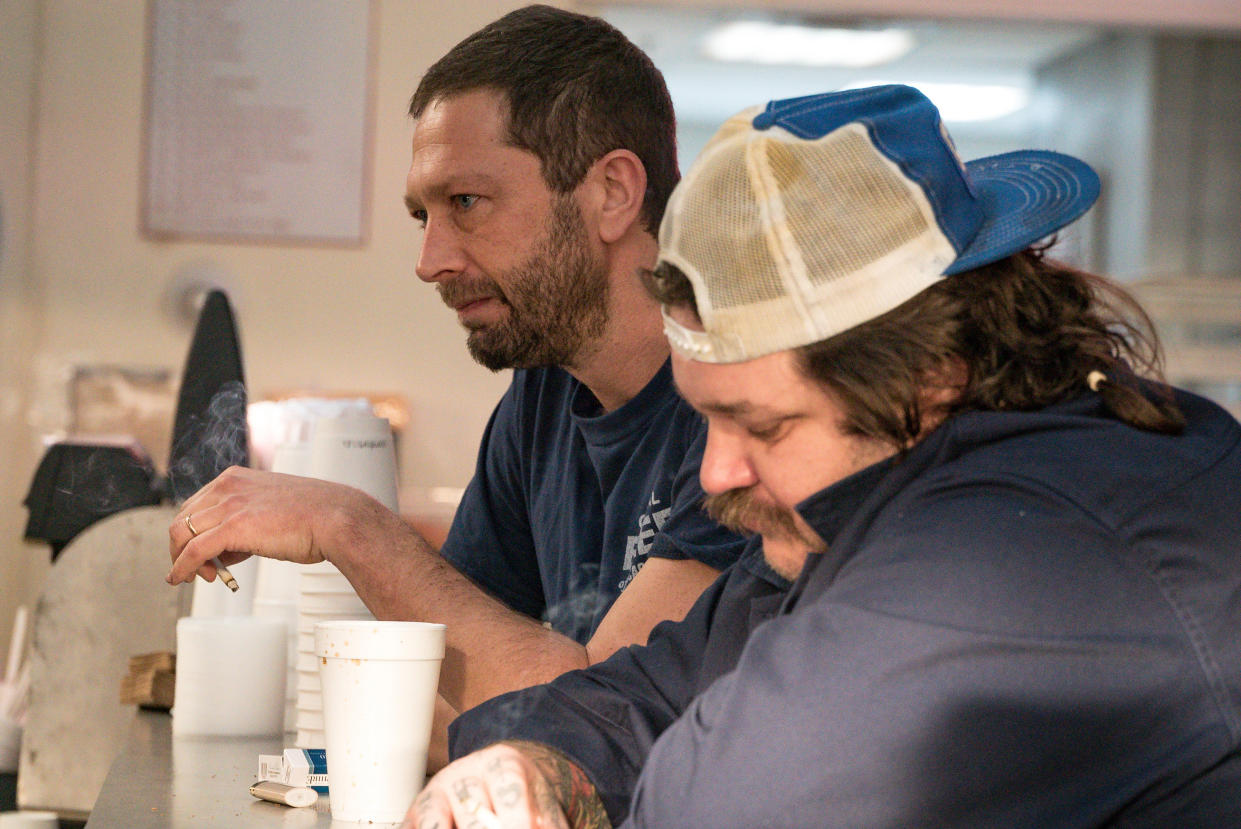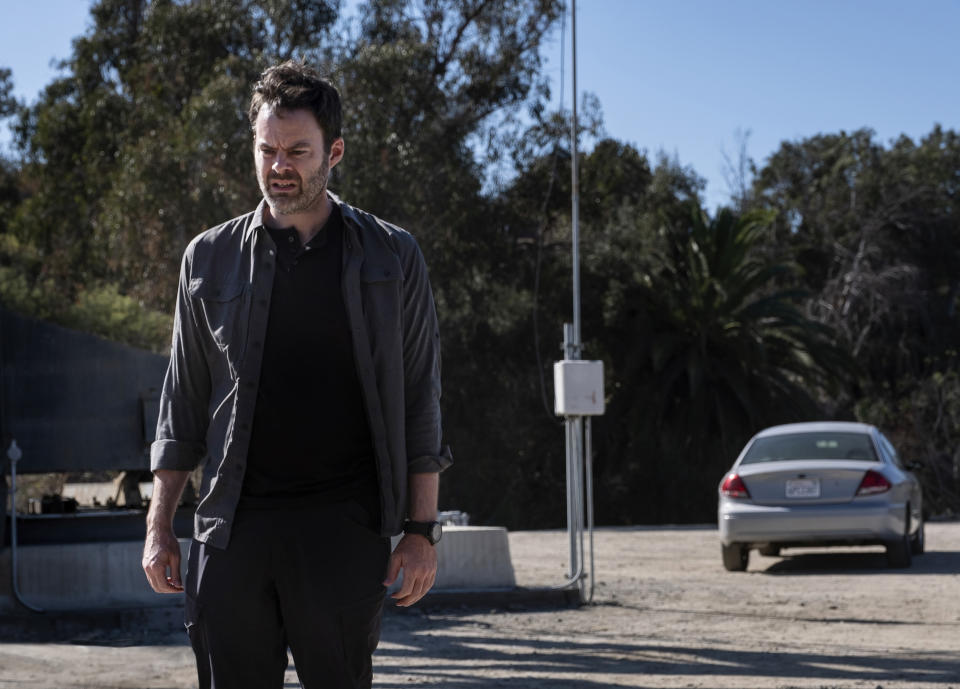In Defense of ‘The Bear’ as a Comedy

Some people just have no sense of humor.
After Monday’s 75th Emmy Awards awarded basically three series — “Succession,” “The Bear,” and “Beef” — some TV fans were left feeling somewhere between robbed and confounded.
More from IndieWire
'The L Word' Pilot Turns 20 - Amid the Worst LGBTQ Backslide in Television History
'Schmigadoon!' Season 3 and Its 25 New Songs Aren't Happening at Apple
A number of observers simply didn’t dig the repetition; “Succession” and “Beef” each won eight Emmys, including the Creative Arts awards the weekend prior to the primetime show, and “The Bear” took home 10. Rote results, sure, but they were probably three of the best five shows of the eligibility window: June 1, 2022-May 31, 2023.
If that feels like a long time ago, that’s because it was. Monday’s Emmy Awards were supposed to air in September 2023, but were delayed by the writers’ and actors’ strikes.
Some of the loudest (online, where it always is) opposition to Monday’s Emmys results was simply about the category that “The Bear” dominated: comedy. The resistance has a point — but that doesn’t make them right.
Yes, “The Bear” is among (if not the) the most stressful shows on TV. One of the facets that makes Christopher Storer’s series so captivating is how it captures the pressure and intensity of working in a kitchen. But “The Bear” is also funny. Like almost all of the best TV shows these days, “The Bear” is pure dramedy; frankly, it might be the most-dramedy of all the dramedies.
So what are awards shows to do? In general terms, they still mostly stick to the old rules: sitcoms are 30 minutes, dramas are one hour. Though officially, that all changed in 2022.
Ahead of the 74th Emmy Awards, the Academy threw that 30/60 rule out the window. Now, producers simply select the submission genre — mostly. There are still some qualifying (or disqualifying) criteria, like episode count and the consistency of themes, cast, and storylines. And anything under 20 minutes is automatically considered shortform.
Episodic runtimes are antiquated to some extent. Back in the day, TV series were completely beholden to time slots; linear television (broadcast and cable) still is. (There are overruns and exceptions for certain programming, mostly live news and sports.) Believe it or not, there was a time when appointment TV was the only kind of TV. Programs began (and ended) at the top or bottom of the hour.
As such, networks had to be militant about episodic runtimes snugly fitting into time slots. A sitcom was (and still is on network TV) 22 minutes of show and eight of advertising. A drama filled up a full hour, but approximately 18 of those minutes paid the bills. Programming executives had 24 hours to fill in any divisible way they wanted.
When streaming took over the media landscape, almost none of that mattered. Storage space was unlimited; shows and movies started and ended when you wanted them to start and end. And there were no commercials, which was part of the entire original promise of streaming. Instead, platforms monetized you exclusively through monthly subscription payments — that’s not the case anymore, and ad breaks are (almost) everywhere.
“The Bear” exists somewhere in the middle of all this madness — not just in genre, but also in platform. “The Bear” is an FX original series but is only available on Hulu (remember that confusing “FX on Hulu” branding?), not FX. As such, episodic runtimes are free to be all over the place; Season 1 episodes ranged from 20-47 minutes.
(With a Summer 2022 debut, “The Bear” Season 1 was far-removed from these Emmys; all 10 Season 2 episodes premiered seven months before Season 1 was honored. Hopefully, the TV Academy’s voters all knew that when awarding supporting actor Ebon Moss-Bachrach — his standout, Emmy-worthy episode is really Season 2’s “Forks.”)

The “Outstanding Comedy” conspiracy theory is that Storer simply chose the category with weaker competition — no one was beating “Succession” in drama this year. That well may be true, but he still had to get through “Abbott Elementary,” “Barry” (also very much a tweener), “The Marvelous Mrs. Maisel,” and “Ted Lasso,” among others.
Storer knows the space. Before “The Bear,” the unknown would have been known for producing another dramedy, “Ramy,” and several stand-up comedy specials. His cast on “The Bear” skews comedic: Jeremy Allen White’s big break was “Shameless” and Ayo Edebiri comes from improv; lower down the call sheet are Chris Witaske of Second City and Abby Elliott and Alex Moffat from “SNL.”
And though most of the comedy in “The Bear” comes from the drama, there are definitely sitcom elements. Neil Fak (Matty Matheson) is classic comic relief; he’d be right at home in any NBC “Must-See TV” show of the ’90s. And Uncle Jimmy (Oliver Platt) should be taken about as un-seriously as any gangster this side of “Lilyhammer.”
But when it comes down to it, “The Bear” is a comedy primarily because Storer (and FX) says so. That is his right as creator and showrunner, and it falls within the rules — old and new.
“The Bear” is a comedy because it has to be something. It is officially one and not the other for the same reason awards shows still have gendered categories — because no one has come up with a better, cleaner idea.
In the end, so long as the very best shows on television are recognized as the very best shows on television, does it really matter? Not to Moss-Bachrach, who probably summed it up best in his acceptance speech.
“These ideas about comedy and drama are a little bit outdated,” he said. “We’re all just trying to reflect the mess of being human, which is deeply hilarious and we’re all suffering.”
Preach.
Best of IndieWire
Sign up for Indiewire's Newsletter. For the latest news, follow us on Facebook, Twitter, and Instagram.
